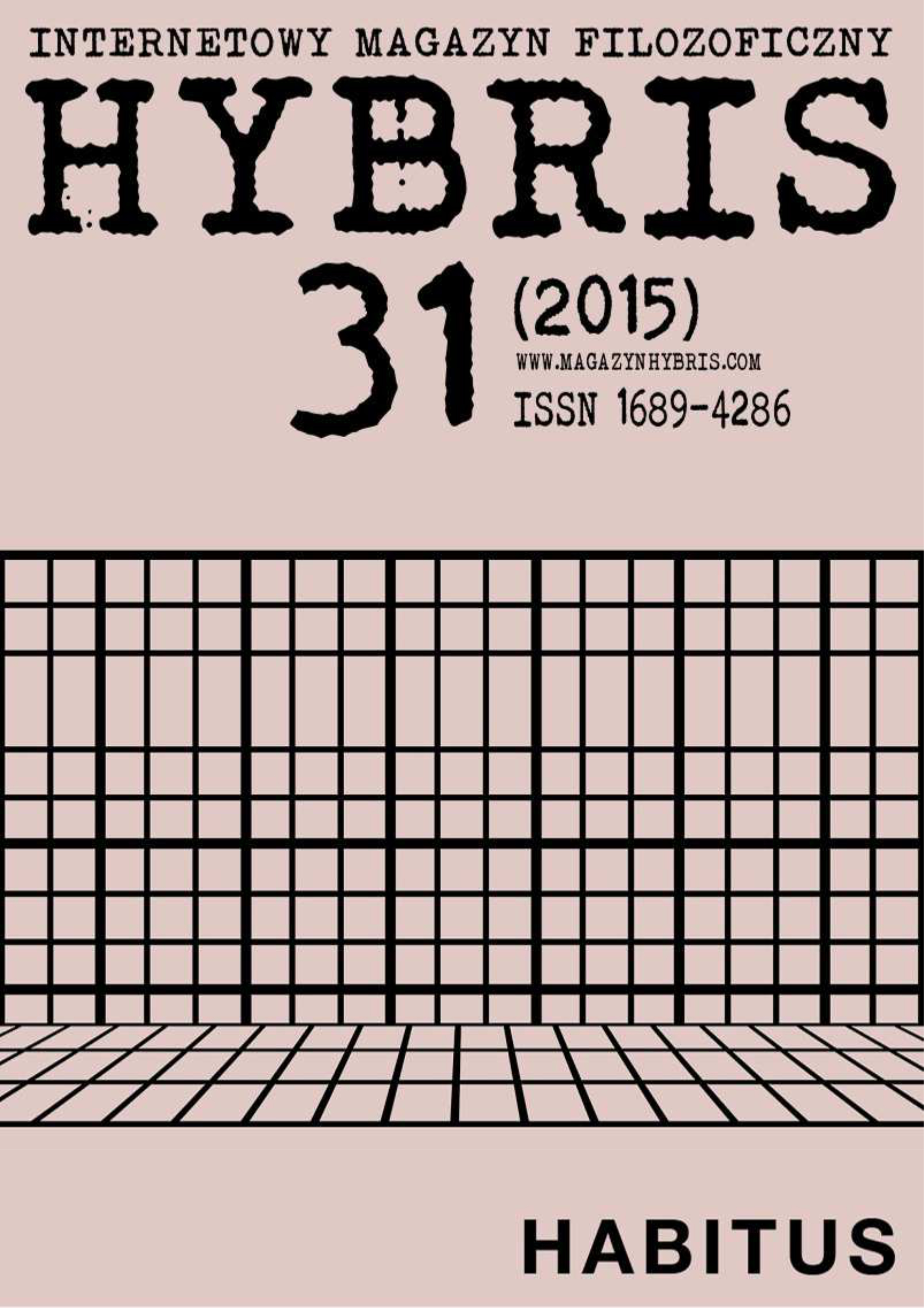Habitus sztuki a autorzy
DOI:
https://doi.org/10.18778/1689-4286.31.07Słowa kluczowe:
art brut, autor, amator, edukacja, doświadczenieAbstrakt
The French term art brut (English - outsider art), meaning "raw art" or "rough art", is a label created by French artist Jean Dubuffet to describe art created outside the boundaries of mainstream culture. In the centre of our discussion is the category of the author (the creator) and the category of the fancier (the recipient loving art). These two categories were analysed by Alain Bouillet - a researcher of art brut of 30 years, who has accumulated an impressive collection of this kind of art. Pierre Bourdieu in Distinction (1979), argues that judgments of taste are related to social position. From time to time, the focus of the dominant class changes from education to experience. Especially today, the involvement in the creation process becomes more important. We have to introduce various issues in art in a different manner. What kind of experience the art opens us up to? It is largely contradictory to the educational experience.
Bibliografia
Aldridge, Alan, 2006, Rynek, przeł. Maciek Żakowski, Warszawa: Sic!
Zobacz w Google Scholar
Arystoteles, 2006, Polityka, [w:] Dzieła wszystkie, przeł. Ludwik Piotrowicz, Warszawa: PWN.
Zobacz w Google Scholar
Barański, Jarosław, 2000, Intelektualizm estetyczny, [w:] „Nowa Krytyka”, 11, ss. 95-112 na: http://www.nowakrytyka.pl/spip.php?article87 dostęp 6 stycznia 2015.
Zobacz w Google Scholar
Boudon, Raymond, 2008, Efekt odwrócenia. Niezamierzone skutki działań społecznych, przeł. Agnieszka Karpowicz, Warszawa: Oficyna Naukowa.
Zobacz w Google Scholar
Bouillet, Alain, 2010, De la rencontre avec les auteurs d’art brut et de l’éthique qu’elle suppose…/O spotkaniu z autorami art brut i jego implikacjach etycznych..., tłumaczenie własne J.D., niepublikowany artykuł przygotowany na Międzynarodową konferencję poświęconą ART BRUT, Poznań 15-16.04.2010.
Zobacz w Google Scholar
Bourdieu, Pierre, 2005, Dystynkcja. Społeczna krytyka władzy sądzenia, przeł. Piotr Biłos, Warszawa: SCHOLAR.
Zobacz w Google Scholar
Bourdieu, Pierre, 2007, Reguły sztuki, przeł. Andrzej Zawadzki, Kraków: Universitas.
Zobacz w Google Scholar
Certeau, Michel, 2000, Heterologies, Discourse on the Other, transl. Brain Massumi, London, Minneapolis: University of Minnesota Press.
Zobacz w Google Scholar
Certeau, Michel, Wynaleźć codzienność. Sztuki działania, 2008, przeł. Katarzyna Thiel–Jańczuk, Kraków: Wyd. UJ.
Zobacz w Google Scholar
Eco, Umberto, 1996, Nieobecna struktura, przeł. Adam Weinsberg, Warszawa: P. Bravo, KR.
Zobacz w Google Scholar
Deleuze, Gilles, 1993, Nietzsche i filozofia, przeł. Bogdan Banasiak, Warszawa: Wyd. SPACJA, PAVO.
Zobacz w Google Scholar
Łotman, Jurij, 1999, Kultura i eksplozja, przeł. Bogusław Żyłko, Warszawa: PIW.
Zobacz w Google Scholar
Jackowski, Aleksander, 1995, Sztuka zwana naiwną, Warszawa: Wydawnictwo Krupski i S-ka.
Zobacz w Google Scholar
Kołakowski, Leszek, 1994, Obecność mitu, Wrocław: Wydawnictwo Dolnośląskie.
Zobacz w Google Scholar
Peiry, Lucienne, 2012, L'enrichissement des collections, [w:] Lucienne Peiry (red.), Collection de l’Art Brut. Lausanne, Paris: Collection de l’Art Brut Lausanne/Skira Flammarion.
Zobacz w Google Scholar
Potocka, Maria Anna, 2007, Estetyka kontra sztuka, Kompromitacja założeń estetycznych w konfrontacji ze sztuka nowoczesną, Warszawa: Fundacja Aletheia.
Zobacz w Google Scholar
Pobrania
Opublikowane
Jak cytować
Numer
Dział
Licencja

Utwór dostępny jest na licencji Creative Commons Uznanie autorstwa – Użycie niekomercyjne – Bez utworów zależnych 4.0 Międzynarodowe.






